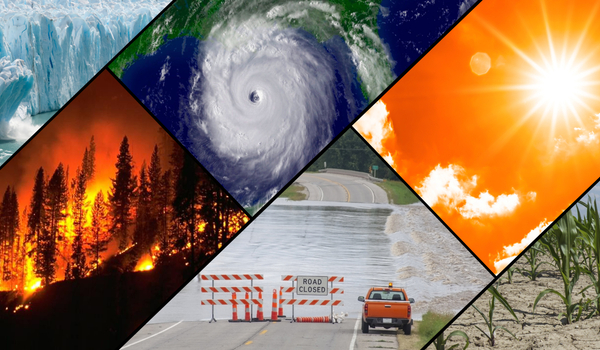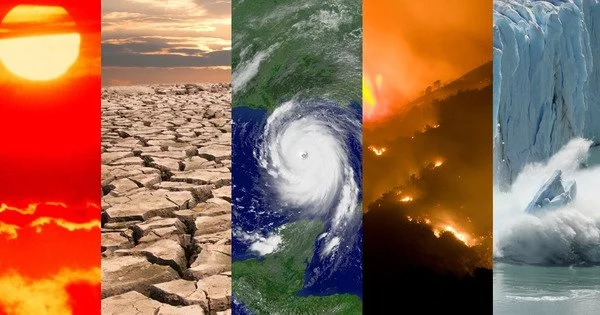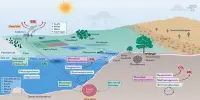Rising global average temperatures have been linked to widespread changes in weather patterns. According to scientific studies, extreme weather events such as heat waves and large storms are likely to become more frequent or more intense as a result of human-caused climate change. This chapter focuses on temperature, precipitation, storms, floods, and droughts that have been observed.
Climate scientists have long struggled to connect extreme weather events to climate change. This has shifted. The science of weather event attribution is now beginning to reveal the true costs and consequences of human-caused climate change. This fast-growing body of research aims to disentangle the various drivers of extreme weather events from human-induced climate change and the best assessments can provide valuable information in insuring against loss and damage, funding adaptation measures, and litigating against polluters.
According to a new study published today in the first issue of Environmental Research: Climate, a new academic journal published by IOP Publishing, attribution science has led to significant advances in linking the impacts of extreme weather and human-induced climate change, but large gaps in published research still conceal the full extent of climate change damage.
Researchers from the University of Oxford, Imperial College London, and Victoria University of Wellington examined the consequences of five different types of extreme weather events to determine how much of the damage could be attributed to human-caused climate change.
Extreme and intense weather events such as heatwaves, droughts, and heavy rainfall have increased dramatically in recent years, affecting people all over the world. Understanding the role of climate change in these events can help us prepare for them better. It also allows us to determine the real cost that carbon emissions have in our lives.
Ben Clarke
To do this, they combined information from the latest Intergovernmental Panel on Climate Change reports and results from a fast-increasing body of attribution studies – where weather observations and climate models are used to determine the role that climate change played in specific weather events.
“They discovered that the link between climate change and some extreme weather events, such as heatwaves, is clear and unequivocal around the world, and that insurers, economists, and governments are likely underestimating the extent of the impacts. Others, such as tropical cyclones, show significant regional differences, and the role that climate change plays in each event is more variable than in heatwaves.”
“Extreme and intense weather events such as heatwaves, droughts, and heavy rainfall have increased dramatically in recent years, affecting people all over the world. Understanding the role of climate change in these events can help us prepare for them better. It also allows us to determine the real cost that carbon emissions have in our lives,” says Ben Clarke from the University of Oxford, lead author of the study.

The authors note that there is an urgent need for more data from lower- and middle-income countries, where the impacts of climate change are more strongly felt. Research on these impacts is hampered when national weather data is not publicly available – examples include South Africa, where corruption denies funds to weather reporting facilities leading to huge data gaps in an otherwise good network; drought-prone Somalia, where disorderly regime changes have disrupted measurements; and many countries, such as Poland, where weather data is only available for a high fee, and thus generally not for publicly funded research.
“We really don’t have a comprehensive overview or detailed inventory of what impacts climate change is having today,” says co-author Dr. Friederike Otto of Imperial College London’s Grantham Institute — Climate Change and the Environment.
“However, we now have the tools and advanced understanding to create such an inventory; however, these must be applied more evenly around the world in order to improve our understanding in areas where evidence is lacking. Otherwise, we deny countries the knowledge they need to make the best use of limited resources and improve people’s chances of living safely and adapting to climate change” She draws a close.
Long-term climate change can have a negative impact on many aspects of society, either directly or indirectly. Warmer average temperatures, for example, may increase air conditioning costs and affect the spread of diseases such as Lyme disease, but they may also improve growing conditions for some crops. Extreme weather variations pose a threat to society as well. Extreme heat events that are more frequent and intense can cause more illnesses and deaths, particularly among vulnerable populations, as well as damage to some crops.
















